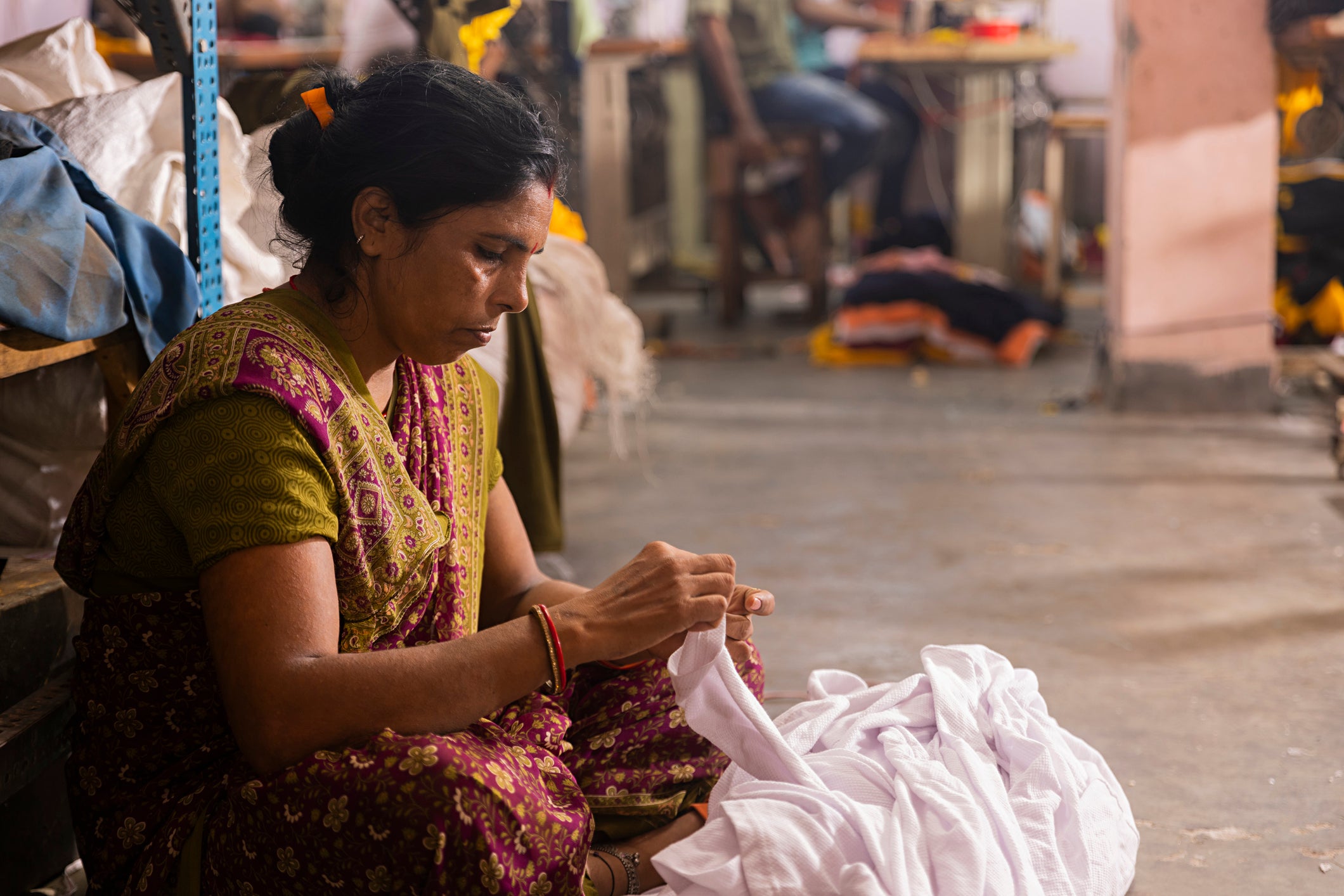
The International Labour Rights Forum cites major improvements in combating workplace gender-based violence and harassment (GBVH) just a year after India’s Dindigul Agreement was launched.
The Agreement was compiled in April 2022 by Indian women- and Dalit-worker-led union TTCU with clothing and textile manufacturer Eastman Exports in a bid to end GBVH at Eastman factories in Dindigul, in the southern state of Tamil Nadu, India.
The legally binding agreement, was also signed by workers’ unions TTCU, AFWA and GLJ-ILRF with global brands H&M Group, Gap Inc and PVH Corp in honour of a young garment worker, TTCU member and Eastman employee, whose life was tragically cut short as a result of GBVH.
Based on the terms defined in the “enforceable brand agreement” (EBA), multinational companies “legally commit to labour and allies to use their supply chain relationships in supporting a worker- or union-led programme at certain factories or worksites.”
The workers’ rights unions explain the Dindigul Agreement aims to give women a collective voice, agency, and power in their workplace and the fashion supply chain.
The Dindigul Agreement Year 1 Progress Report published by Global Labor Justice- International Labor Rights Forum (GLJ-ILRF), Asia Floor Wage Alliance (AFWA), Tamil Nadu Textile and Common Labour Union (TTCU) has documented the progress of women garment workers, including migrants in Tamil Nadu, India against gender-based violence and harassment (GBVH) following the launch of the Agreement.
It highlights how the decisive and timely remediation of GBVH under the Agreement has led to the successful remediation of other labour violations under national law regarding minimum wages, social security payments, workplace hazards, and other workplace conditions.
Initial findings from the report
The report states from April to December 2022, workers using the provisions of the Agreement raised 185 grievances:
- 177 (96%) were raised by women
- 98% of the 185 grievances workers raised at the factory were resolved
- 90% of grievances were resolved within a week
- All 23 GBVH cases raised were resolved
- Over 30 union-management meetings to resolve grievances held at the worksite
- 58 worker shop-floor monitors were trained to identify GBVH and accompany workers in the grievance process
- Over 2,000 workers and management were trained on GBVH and the terms of the agreement, including senior management, support staff, and contract bus drivers.
The workers’ rights unions point out the development of a multi-tier bottom-up survivor-centred GBVH identification, prevention, and remediation system, along with mature industrial relations, has helped Eastman Exports increase worker efficiency by 16%, increased reporting to work on time by 4.3% and reduced attrition rate by 67% between 2021 and 2022.
Thivya Rakini, TTCU president said: “The agreement has created a space of social dialogue between the union and the management of Eastman Exports. This has enabled us to help both workers and management improve working conditions as well as the efficiency of production. Transparent conversations are happening between management and workers– leading to fewer conflicts, mature industrial relations and improved trust and confidence in management among workers.”
Eastman Exports director Cibi Karthic adds: “We value the work put in by the organizations, and together, have come a long way. We believe in an employee-first culture and will continue to imbibe best practices at work. We firmly believe in fostering a healthy and supportive environment where every employee feels heard, respected, and valued. We remain steadfast in our commitment to ensuring fair treatment, equitable opportunities, and a supportive workplace for our valued workforce.”
AFWA’s International coordinator, Anannya Bhattacharjee, says the Dindigul Agreement is a model that works for workers, suppliers and brands alike. Bhattacharjee continues: “The Dindigul Agreement addresses the fundamental power imbalances within the factory floor and gives the victims and survivors of GBVH an opportunity to remediate GBVH, based on their lived experiences. This democratizes workplaces, improves the retention of women workers, and increases work efficiency and worker well-being.”
The report also highlight the important role fashion brands play in terms of making the agreement effective.
It explains the agreement went beyond preventing GBVH as it has also led to the creation of better jobs that promote equity and democratic work culture; prevented other kinds of rights violations; led to joint problem solving between workers and management; meaningful remediation as defined by women workers; and appropriate roles for the union, supplier and fashion brands.
Additionally, the US government has also recognised the role of this Agreement in strengthening supply chain accountability and remediation from forced labour indicators.



